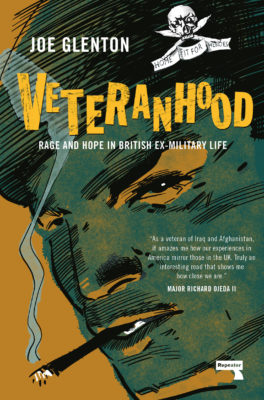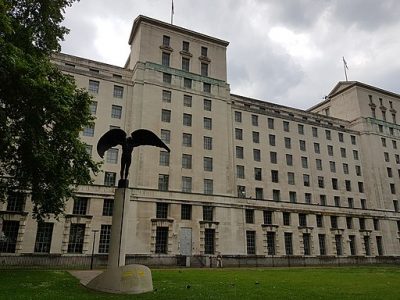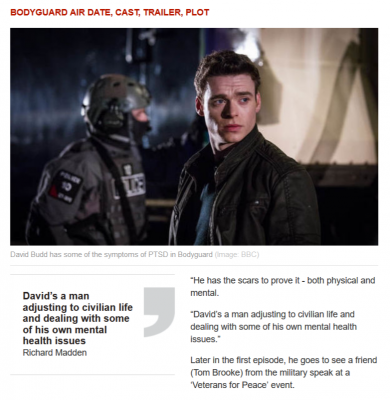Veterans tell of their experiences and their turn to peace
ForcesWatch
On the 9 April 2012 the UK group of Veterans for Peace was launched. The movement has been long established in the US – ‘exposing the true costs of war and militarism since 1985’.
There are reasons why VfP UK has taken longer to start – the culture and regulations around speaking out are different in the US. It has also been more active in post WW2 conflict (notably in Central America during the 1980s) but also the US military is a massive institution, involving a huge number of people with around 11/2 million active personnel and a similar number of reserves.
However, after ten years of active conflict in Iraq and Afghanistan, British ex-service personnel are starting to come together to voice their concerns about the conflicts and what it does to everyone involved.
Ten veterans attended the inaugural meeting. At the public launch they each spoke of what had led them to this point. Barry Ladendorf came all the way from San Diego where he is active in VfP. His chance meeting with Ben Griffin at a ForcesWatch event was instrumental in getting the UK group started. From his experience, the existence of a movement of veterans talking about peace gives others hope.
Barry emphasised that honouring the service of individuals does not have to mean supporting the wars they are engaged in. Veterans know better than anyone the chaos and devastation that war brings that lasts a lifetime. In the US, a third of the homeless are veterans, while the astronomical cost of war create a lack of public funds for welfare and basic infrastructure to help those who most need support. Suicide and mental health problems amongst veterans are at record high levels but inadequately acknowledged or addressed.
Also from the US, Gerry Condon spoke about people within the military resisting war, often in ways never heard about in the mainstream media. VfP support those in the military who act on their own conscience, despite the military’s lack of recognition of this. Soldiers like Bradley Manning who revealed that the killing of civilians in Iraq was more routine than admitted and is now facing extreme penalties and severe conditions of detention.
Ben Griffin experienced being prevented from speaking when an injunction was placed upon him at the request of the MoD. Ben left the SAS when he was no longer able to participate in what he was being asked to do in Iraq. He spoke of how involvement in groups like VfP could help veterans come to terms with their involvement in situations that haunt them.
Michael Lyons spoke of his recent detention for disobeying orders when he declared himself a conscientious objector in 2010. Mike, a medic in the Royal Navy, has been one of the few to persevere with becoming a conscientious objector despite the hurdles and obfuscation put in the way of those expressing ethical concerns. He spoke of how the support of others, including many people he didn’t even know, had been vital to getting through his court martial and his time in military prison.
Matthew Horne who served with the Scots Guards in Iraq spoke movingly of the distance from other people that is created between the solider and the ‘enemy’ through the use of derogatory names or the distance that modern technology allows. The humanity that is seen when close to someone is lost. Matthew spoke about how difficult some find it on leaving the forces if they don’t have employment and are left to face the consequences of their involvement alone, some taking their own lives in despair.
Scot Albrecht who served with the US air force in the UK during the 1980s told how he took courage from the actions of others. He read aloud The Price of Peacemaking by Daniel Berrigan. “War, by its nature, is total-but the waging of peace, by our own cowardice, is partial. So a whole will and a whole heart and a whole national life bent toward war prevail over the verities of peace.”
Rob Green a former Royal Navy Commander who served at Northwood HQ during the Falklands war spoke of the need for veterans to come together and the importance of VfP in this. He has just published a book about his aunt Hilda Murrell, an anti-nuclear campaigner murdered in 1984, a political conspiracy around the nuclear industry and the Falklands war.
Jim Radford who served in the Royal Navy sang two powerful songs including And the band played Waltzing Matilda whose line that there are ‘worse things than dying’ reflects the burden carried by those who survive. Danny Martin who served in the Royal Signals in Iraq read two of his poems reflecting on how he was recruited into the army (‘Acknowledgements’ see the poem here) and the everyday injustice of occupation (‘Haddock of Mass Destruction’).
See more: veterans,
Like what you read?
> Sign up for our newsletter or blog notifications
> Support our work – from just £2 a month










